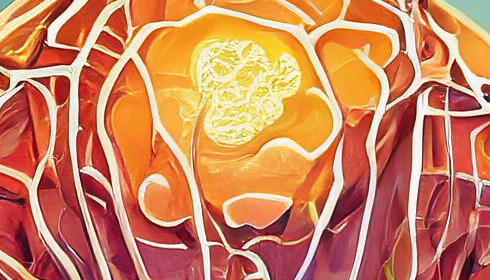
Tau protein Offers Neuroprotective yet harmful in neurodegenerative diseases: Baylor College Research
In a remarkable study published in Nature Neuroscience, researchers from Baylor College of Medicine and the Jan and Dan Duncan Neurological Research Institute (Duncan NRI) at Texas Children's Hospital uncovered a novel role for the tau protein. Tau, which was previously thought to be a risk factor for neurodegenerative illnesses such as Alzheimer's, now appears to have a protective role in the brain by alleviating oxidative stress and supporting healthy ageing.
The study found that Tau aids in the formation of lipid droplets within glial cells, which then sequester harmful lipids produced by reactive oxygen species (ROS). ROS, while naturally occurring components of biological functions, can become detrimental in excess, causing oxidative stress and neuronal damage.
"ROS are naturally occurring byproducts of many cellular processes in the body. While low amounts of ROS are beneficial, excess ROS harms cells by causing the development of hazardous forms of other molecules that cause oxidative stress, such as peroxidated lipids," noted Dr. Lindsey Goodman, the lead author and postdoctoral fellow in Dr. Hugo Bellen's group.
"Neurones are particularly susceptible to oxidative stress and are destroyed if peroxidated lipid levels are not tightly controlled.
" Tau's Dual Role: Protector, Perpetrator The findings suggest that Tau plays a dual role. On the one hand, proper Tau proteins are required for the development of lipid droplets in glial cells, which protect neurones by separating harmful lipids.
Mutations in Tau, on the other hand, can interfere with this protective process, worsening neurodegenerative diseases.
"This process effectively removes and neutralises these toxic lipids," Goodman said.
"In this study, we looked at the involvement of Tau in the development of glial lipid droplets. The findings demonstrated that proper Tau in both flies and glial cells derived from rats and humans is required for the development of these lipid droplets. However, glial cells' ability to create lipid droplets in response to neuronal oxidative stress becomes impaired when the Tau protein contains mutations linked to illnesses like Alzheimer's.
This failure causes increased oxidative damage and neuronal death. Goodman says that this suggests that changes in Tau may make the protein less able to stop oxidative stress and also cause it to build up in ways that are typical of diseases, as has been shown in previous research.
"Altogether, the findings support a new neuroprotective role for Tau against the toxicity associated with ROS." Potential for new therapeutic strategies.
The study's findings reveal that, despite its traditional negative perception in the context of neurodegenerative illnesses, Tau plays a crucial protective role for brain cells. This discovery opens up new possibilities for treating neurodegenerative illnesses by leveraging Tau's protective characteristics.
"By revealing a surprising new neuroprotective role for Tau, the study opens the door to potential new strategies to slow, reverse, and treat neurodegenerative conditions," said Dr. Hugo Bellen, the study's corresponding author, a distinguished service professor in molecular biology and genetics at Baylor and holder of a Chair in Neurogenetics at Duncan NRI. In essence, the findings call into question the widely held belief that tau is only a contributing factor to neurodegenerative disorders.
Instead, it emphasises the protein's important role in protecting neurones from oxidative damage in normal settings. However, alteration or absence of Tau results in the loss of its protective qualities, thereby increasing susceptibility to neurodegenerative disorders.
This revelation not only adds to our understanding of Tau's intricate biochemistry, but also opens the door to possible future therapeutic innovations targeted at improving its protective capabilities in the fight against neurodegenerative diseases